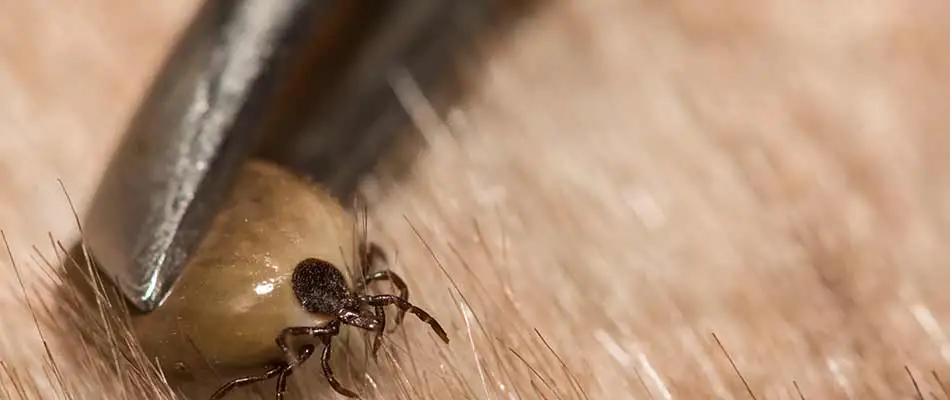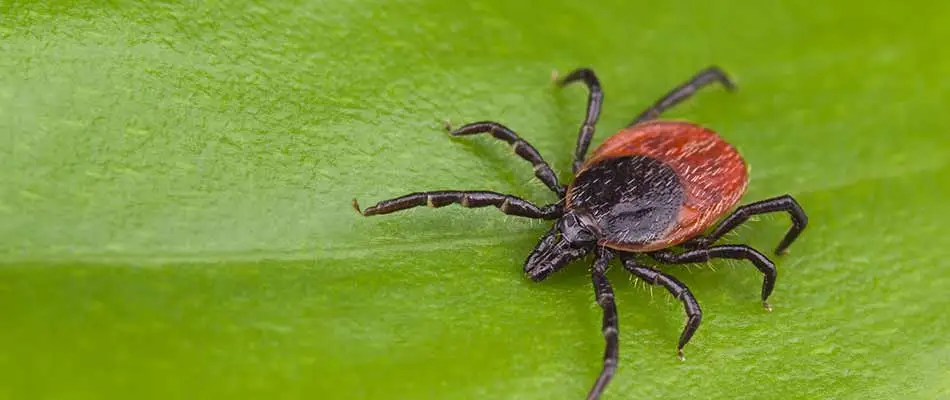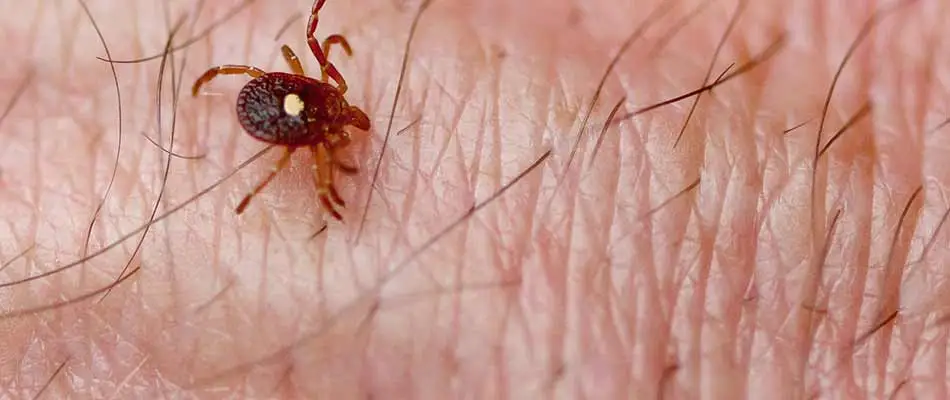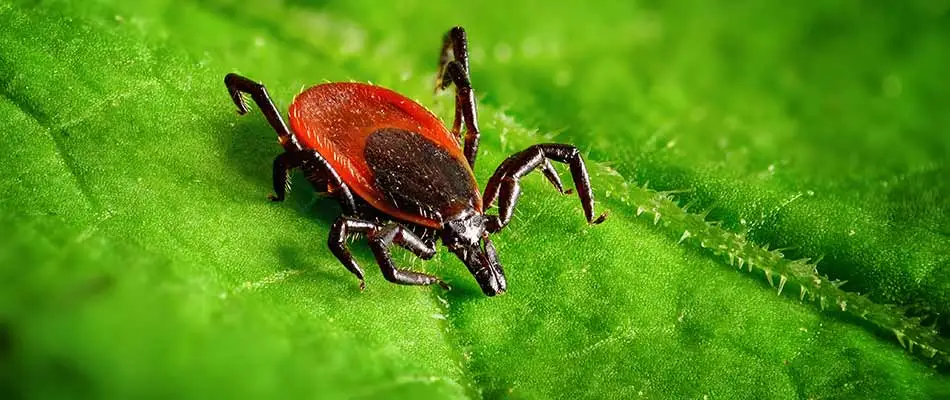In New Jersey areas such as Watchung, Westfield, Warren, and nearby communities, many properties have issues with a nuisance pest: ticks. These arachnids can carry harmful diseases and transmit them when they bite you.
Learn about four types of ticks you should try to avoid in your lawn and why tick control treatments are crucial.
1. The American dog tick thrives in overgrown fields and forest edges.

One common tick in our area is the American dog tick, sometimes also called the wood tick. They thrive in areas such as the edge of a forest or overgrown fields and can be found on all types and sizes of animals such as mice, squirrels, raccoons, horses, cattle, and more. They are known to carry tularemia as well as Rocky Mountain spotted fever and tick paralysis.
2. Deer ticks are known to spread Lyme disease, among others.

The deer tick, or blacklegged tick, lives up and down the eastern United States. It often lives on white-tailed deer, hence the name "deer tick." They can also prey on opossums, raccoons, skunks, deer mice, and others. Types of diseases this tick is known to spread include:
- Lyme disease
- Anaplasmosis
- Babesiosis
A deer tick is smaller than a dog tick, but its bite can be much more dangerous to humans.
3. Lone star ticks are named for the white spot on a female's back.

While many may think lone star ticks hail from the state of Texas, they actually call the eastern part of the country home and are named so because of the white spot on the females' backs. They often bite humans, more so than other types of ticks. The bites result in a circular rash and can transmit diseases like tularemia, Heartland virus, Southern tick associated rash illness, and Bourbon virus.
You often find these living in shaded areas and they can choose a number of animal hosts such as foxes, rabbits, raccoons, dogs, cats, birds, and humans.
4. Longhorned ticks are not native to the area.

The Asian longhorned tick is not native to our area of New Jersey, and in fact is not usually found in the Western Hemisphere—it was first discovered here in 2017, according to the Centers for Disease Control. There are still ongoing tests being conducted on this new threat, but the females seem to be able to lay eggs without even mating and thousands of these ticks can be in one spot or even on just one animal.
Until more tests can be completed, they do not know for sure how many diseases the tick can transmit, but it is known to transmit Rocky Mountain spotted fever.
Worried about ticks living in your yard? Call us for tick control services.
In Westfield, Warren, Watchung, and neighboring areas of New Jersey, our company provides tick control services to alleviate your worries about ticks living in your yard. Our treatments are administered throughout tick season to keep these pests away from you, family members, and your pets. Call us at (833) 452-9666 to set up service today.



Comments (1)
Thanks for your comment!
Thanks for your feedback! Your comments have been successfully submitted! Please note, all comments require admin approval prior to display.
Error submitting comment!
There is a problem with your comment, please see below and try again.